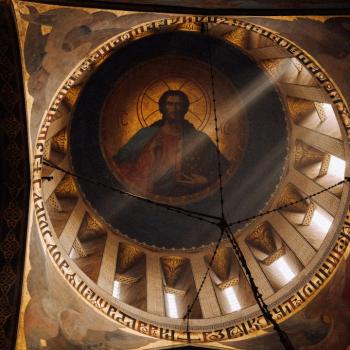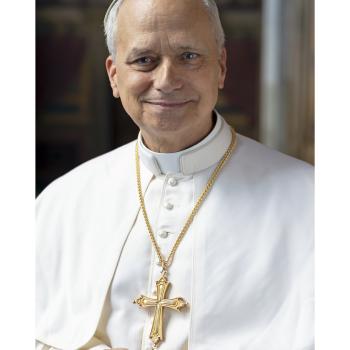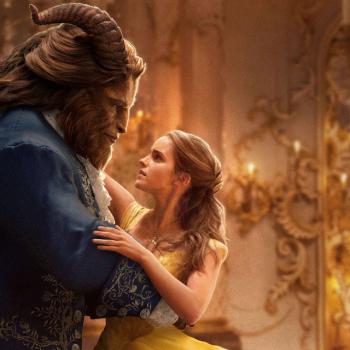At the end of each liturgical year, the readings of the mass of Christ the King invite us to contemplate the end things, which refer to ancient prophecies and the redemptive mystery of the life of Christ. This year, Daniel’s prophecies prepare us to receive Christ as King.
Dreams of the Messiah
We remember Daniel primarily for his role in the lion’s den. It might be too easy to forget that Daniel was also a prophet who could see the future. During his slumber, Daniel dreamt of the coming of the Messiah. God granted him visions in prayer as well as prophetic dreams that allowed him to see the future. This glimpse of the Messiah eclipsed all other visions in its importance. In a time of great turmoil for the people of Israel, God revealed this source of great hope to the prophet Daniel.
Most of us dream of things much more mundane than Daniel’s dream of the coming of the Messiah among the clouds. “As the visions during the night continued, I saw coming with the clouds of heaven” (Dn. 7:13). What do you imagine it must have been like for Daniel to dream of something so foreign to his own experience and expectations? God revealed this message to Daniel so that he could give the message to Israel, so that they would expect not a military messiah but see their salvation descending in God’s right hand. Though the people would give this king “dominion, splendor, and kingship,” (Dn. 7:14) he would not be just another king.

Lifting up our heads
We need to look to the future courageously. Often, our heads are weighed down by our own worries. Daniel teaches us it is important to dream, and to make haste to bring those dreams to reality. In his dreams, Daniel sees Jesus the Messiah among the clouds. Like Daniel, we should raise our eyes to heaven and dare to dream about our role in God’s kingdom.
“Many of your dreams are the same as those of the Gospel. Fraternity, solidarity, justice, peace: these are Jesus’ own dreams for humanity. Don’t be afraid to encounter Jesus: he loves your dreams and helps you to make them come true” (Pope Francis, 21 November 2021).
Our dreams invite us to accomplish great things during our service to Christ our King. What are your dreams?
Condemning a King
Christ’s trial before Pilate precedes his condemnation. Pilate sees authority only in earthly power, some of which he himself possesses because of being in the good graces of the emperor. The procurator calls Jesus a king because he has no other vocabulary to describe him. The members of the Sanhedrin were convinced that Jesus would put an end to their power. Most of the time, Pilate chose to stay out of most of the arguments of the Sanhedrin, particularly the dispute with Jesus. To convince him to do their bidding, they would have to present their case in a way that showed Jesus to be a threat to the power of Rome. When Pilate interviews Jesus, he seems uncomfortable, asking ultimately “what is truth?” Jesus allows him to continue in his unease. Beyond his eventual condemnation, the trial asserts clearly that Jesus is the King of the Jews.
Misplaced Loyalty
Pilate’sloyalty to the emperor was the reason the Sanhedrin was able to convince him to put Jesus to death. The Sanhedrin convinced Pilate that Jesus was a threat to the power of Rome. Pilate’s wife Claudia was related to the emperor and is probably the reason he had his position. This may have added to his own insecurity, and we can imagine he wanted to cling desperately to his own power. Having risen above his expected station in life, he did everything he could to avoid losing it. He placed his own interests above the truth.
Crucified King
The power of Christ “is not the power of the kings or the great people of this world; it is the divine power to give eternal life, to liberate from evil, to defeat the dominion of death” (Pope Benedict XVI, 22 November 2009). The Kingdom of grace is never imposed and always respects our freedom. Jesus invites us to go beyond our trust of the supremacy of this world so we can allow him to give us eternal life and free us from evil and the power of death. The Cross is a paradoxical sign of the power of Christ.
When we celebrate Jesus as Christ the King, we remember Jesus crucified. Through faith, we can recognize the divinity of Christ that has been disfigured by the Cross.
In the crucified Jesus the divinity is disfigured, stripped of all visible glory and yet is present and real. Faith alone can recognize it: the faith of Mary, who places in her heart too this last scene in the mosaic of her Son’s life. She does not yet see the whole, but continues to trust in God, repeating once again with the same abandonment: “Behold, the handmaid of the Lord” (cf. Lk 1:38) (Pope Benedict XVI, 21 November 2010).
Eyes of Faith
Mary is the one who knows who Jesus is and cannot be fooled by the disfiguring he receives at the hands of his torturers. The same faith that allowed her to say yes to the angel preserves her knowledge of her Son, Jesus the Messiah. Faith allows all of us to recognize Jesus for who he truly is.
When we celebrate Christ as King, we are not making a political statement; we are expressing our understanding that he has full rights to our lives and our futures. When Jesus talks to Pontius Pilate, the procurator can only perceive a threat to his authority. This reveals his ignorance of the real identity of Jesus and his kingly authority. Jesus is unique. “One can and must say that Jesus Christ has a significance and a value for the human race and its history, which are unique and singular, proper to him alone, exclusive, universal, and absolute” (Dominus Iesus, 15).
Faithful Witness
Jesus is the faithful witness, the beginning and the end, the Alpha and the Omega. Jesus is so important that he is central to all history. In fact, it is impossible to read and understand human history without knowledge of Jesus. Daniel prepares Israel to receive Jesus as the Messiah whereas the Book of Revelation prepares us for the definitive coming of Christ as King. John writes in the Book of Revelation: “Behold, he is coming amid the clouds, and every eye will see him, even those who pierced him” (Rev. 1:7).
Daniel’s dream invites us to recognize Jesus as the Messiah and make him our true king. With Jesus, we are called to dream. He wants to inspire in us the great things we can accomplish in his name. No political figure can offer us salvation. Our leaders should serve the Common Good, but they cannot offer us spiritual salvation. Hopefully, they can responsibly improve our lives, but we will be disappointed if we expect more from them. Only Christ is King.
Subscribe to the newsletter to never miss an article.












